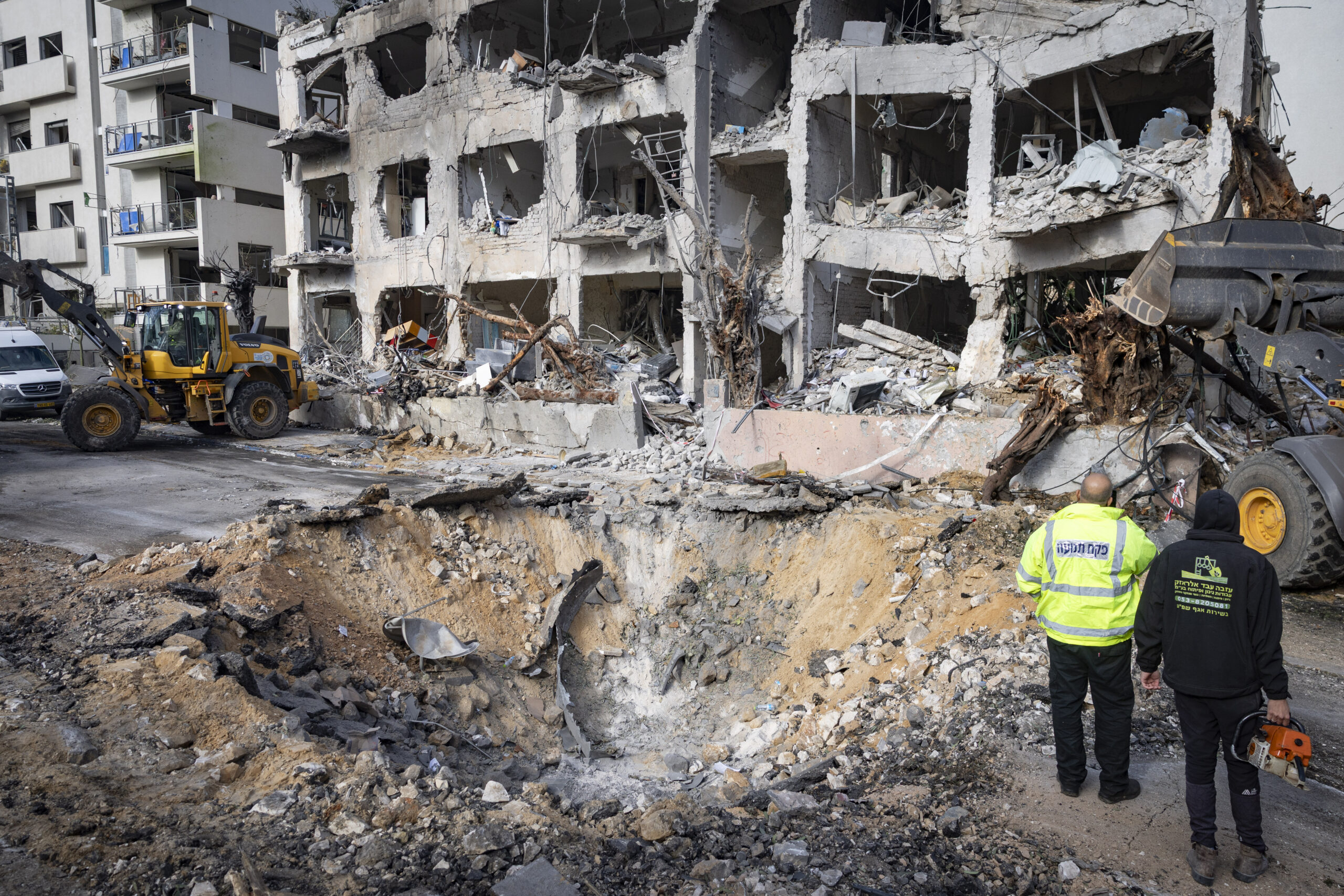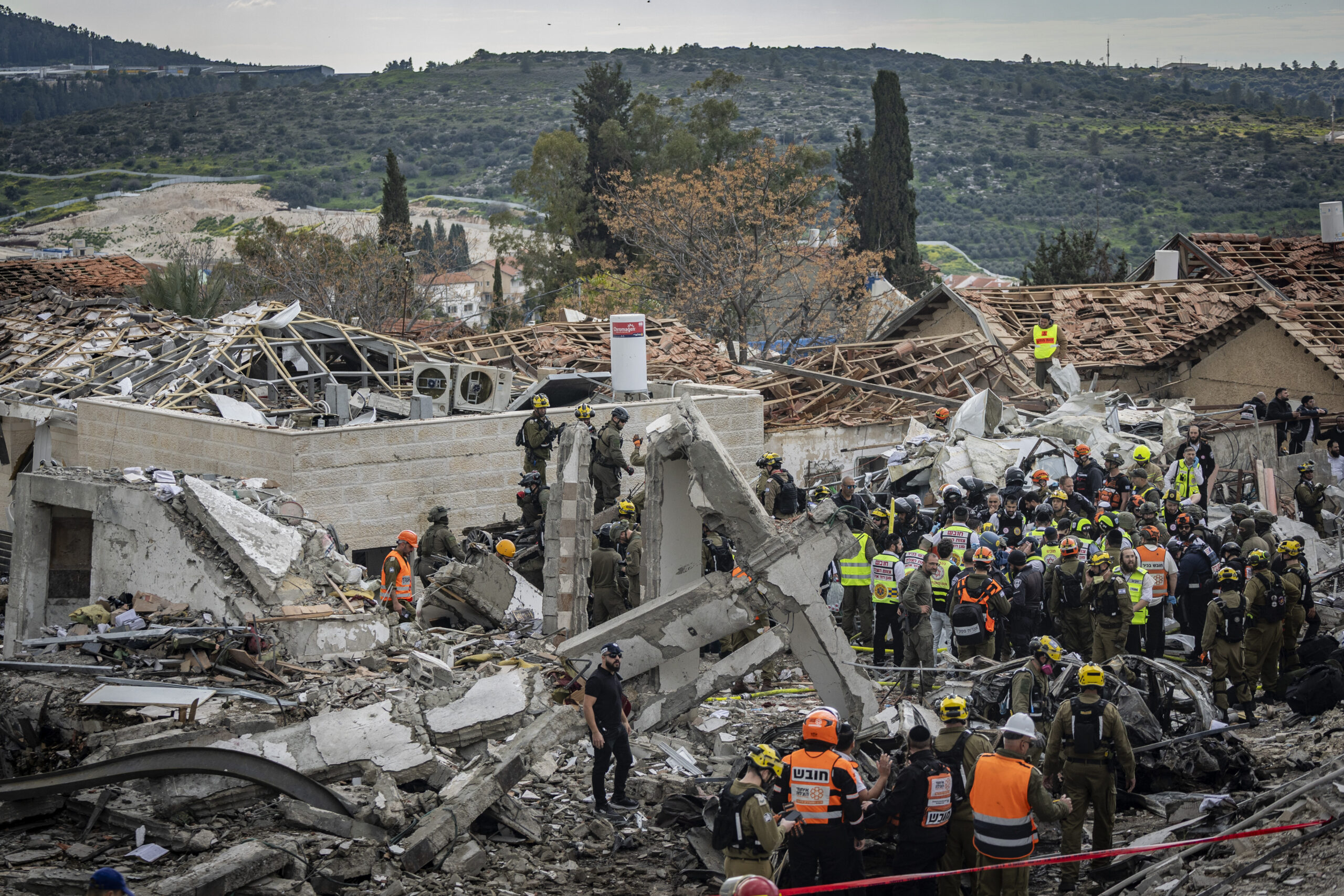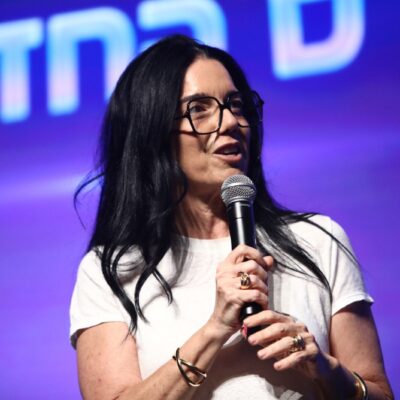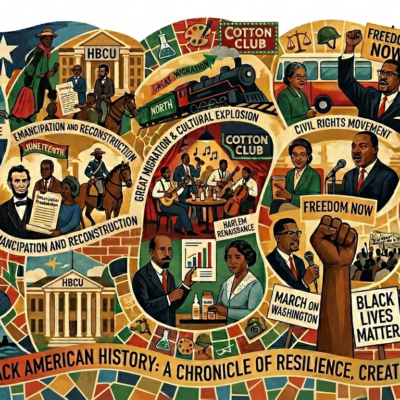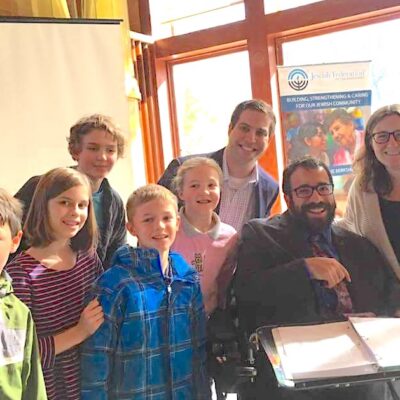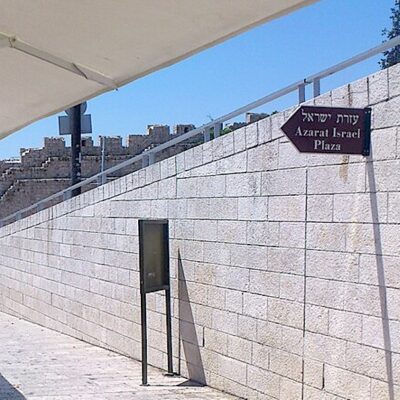Backing Beta Israel
Fearing it won’t be a priority, N.Y. federation funds groups campaigning for Ethiopian aliyah
Struggle for Ethiopian Aliyah received a small grant to support its efforts to raise the issue in public as government seems to step away from the cause

Courtesy/The Struggle for Ethiopian Aliyah
Hundreds of Ethiopian Israelis protest outside the cabinet meeting on May 14, 2023.
The UJA-Federation of New York is investing in a number of Israeli organizations focused on the issue of Ethiopian aliyah, or immigration to Israel, as efforts to bring the thousands of Ethiopians eligible for Israeli citizenship waiting in transit camps in the country have largely stalled.
In addition to funding programs through the Jewish Agency and the Immigration Ministry to ease aliyah for those who have been able to come to Israel, UJA-Federation of New York has given grants to activists working to raise the issue in the public sphere, through media campaigns and protests.
This appears to reflect activists’ concerns that the issue of Ethiopian aliyah will be less of a priority for the current government, which has stated its intentions to focus on encouraging aliyah from the U.S. and France. Though the budget for the coming year has yet to be approved by the Knesset, it does not appear that funds have been specifically allocated toward bringing over the thousands of remaining Ethiopians who are eligible for Israeli citizenship.
“The federation’s devotion to the cause of aliyah from Ethiopia goes back 30, 35 years. It is one of the topics that is of the utmost importance, touching on the souls of the federation and of the people in key positions in the federation,” said the head of UJA-Federation of New York’s Israel office, former Knesset member Itzik Shmuli.
“With the creation of the new government and the introduction of the new minister [Ofir Sofer] into his position, we want to see that [existing] momentum will continue, even if we know that it won’t happen at the same pace,” Shmuli told eJewishPhilanthropy.
The Immigration Ministry did not immediately respond to a request for comment.
To advance this issue, he said, UJA-Federation of New York is working directly with the Israeli government and the Immigration Ministry, speaking to them about the issue and working to raise awareness about it. “But we are also supporting organizations like the Struggle for Ethiopian Aliyah to help bring this issue to the public agenda,” Shmuli said.
The Struggle for Ethiopian Aliyah is a grassroots group largely made up of Ethiopian-Israeli volunteers who have family members still in Ethiopia. A member of the organization said the grant was not for an astronomical sum — a few thousand dollars — but enough for a part-time salaried worker and the funds to become a certified nonprofit in order to allow it to more easily receive charitable donations going forward. The Struggle has been active for nearly a decade, organizing protests and lobbying the Knesset and government to advance the issue.
In addition to funding, UJA-Federation of New York is helping the group in other ways, with connections and advice. However, a federation spokesperson stressed that while the Struggle may conduct lobbying in the Knesset, UJA-Federation of New York does not and is therefore not part of those efforts specifically.
In 2015, under Prime Minister Benjamin Netanyahu, the Israeli government passed resolution 716, which approved the immigration of thousands of Ethiopians who were eligible for Israeli citizenship, generally not because they themselves were Jewish or the descendants of Jews (though this is disputed by activists) but because they have first-degree relatives in Israel and are eligible through family reunification.
In the eight years since that resolution was passed, many have indeed made aliyah, with thousands coming in the past three years through a government-led initiative known as Operation Tzur Israel.
However, thousands more are estimated to still be waiting in what were meant to be temporary transit camps in the cities of Gondar and Addis Ababa. Some of these people have been living in these transit camps for more than two decades under harsh conditions.
“There’s no food, no medication. There are diseases. There’s no security. You can’t walk around as a Jew with the security. As a minority, you are persecuted in this way or that,” the director of the Struggle, Surafel Alamo, told eJP.
Last week, the group organized a protest with hundreds of participants, who were overwhelmingly Ethiopian Israelis with family still in Ethiopia. Holding photographs of their loved ones, the protesters demonstrated against the lack of a budget for bringing their families to Israel. Last Thursday, Israel also marked the national day of commemoration for the thousands of Ethiopian Jews who died while making the journey from Ethiopia to Sudan, from which they were airlifted to Israel.
The Struggle is now running a new social media campaign, getting people to share photographs of themselves with signs reading: “A budget for Ethiopian aliyah now!” It is also organizing another protest next week in Tel Aviv.
For Alamo, who spoke at last Sunday’s demonstration, the issue of Ethiopian aliyah is an intensely personal one. “I was only just reunited with my brothers who had been waiting for 16 years in a camp in Gondar. It’s unbelievable for me as a citizen who fought for the country, who took part in [2014’s Gaza war]. It’s something that doesn’t match the Zionist vision,” Alamo told eJP. “I lost three relatives — two brothers and a mother — who died while waiting [to make aliyah].”
Alamo said his organization estimated that it would cost roughly NIS 250 million ($68 million) to complete the aliyah operations and bring over everyone waiting in transit camps in Ethiopia.
“It may sound like a lot, but for a country, that’s a relatively small sum that shouldn’t have an impact on balancing the budget. And it would help so many families, the grandmother who hasn’t seen her kids and grandchildren for a decade and a half,” Alamo said.

 Add EJP on Google
Add EJP on Google





